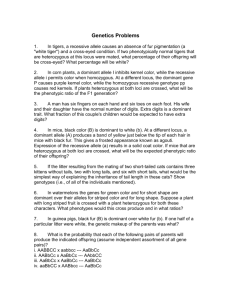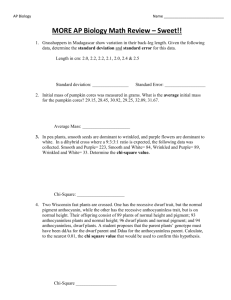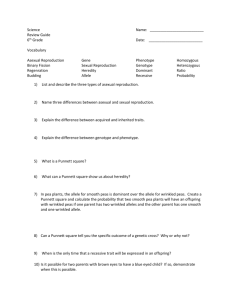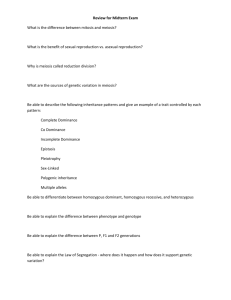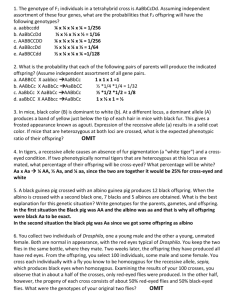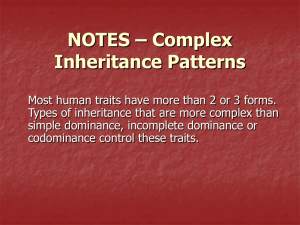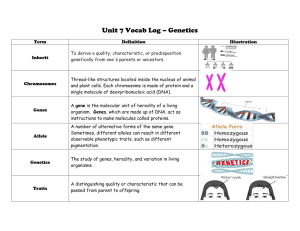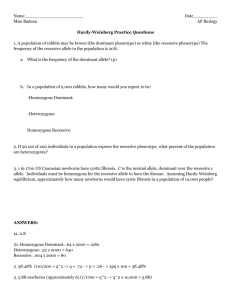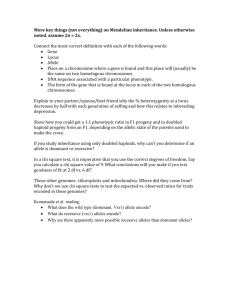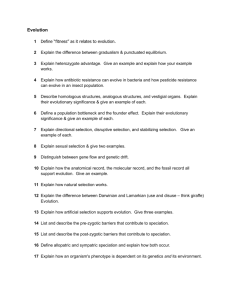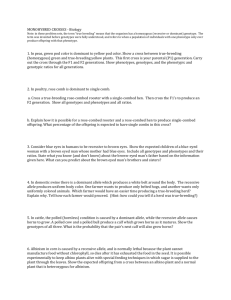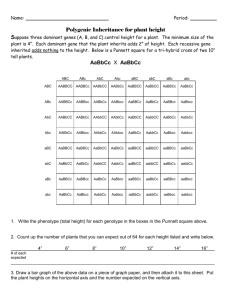Genetics Review Problems Answers
advertisement
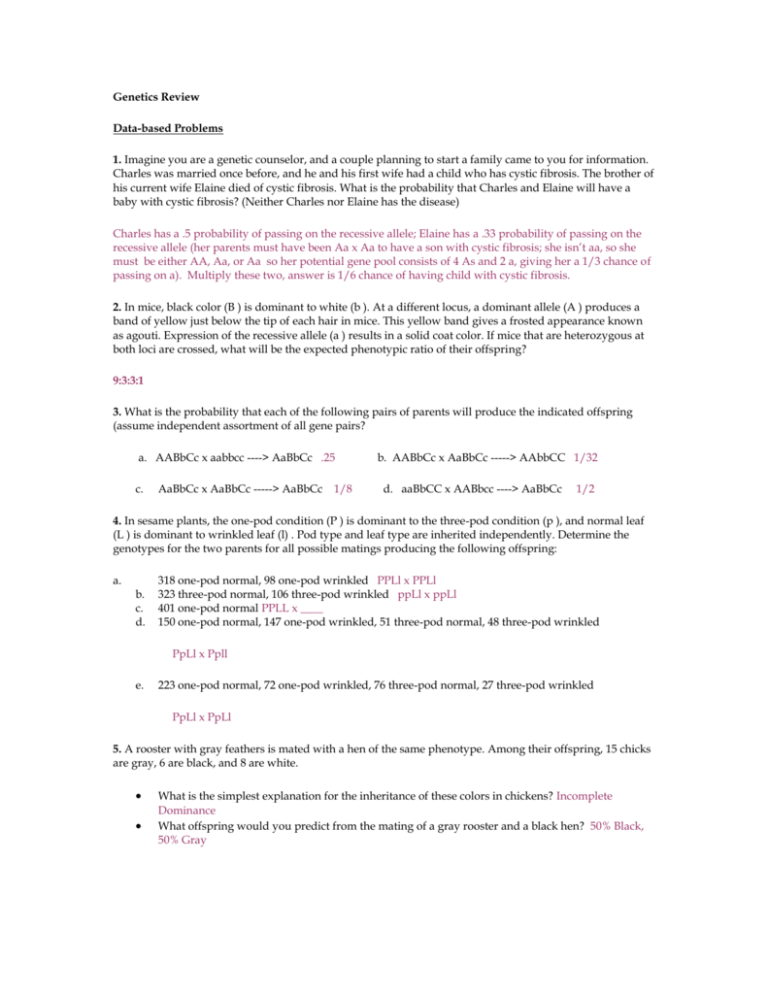
Genetics Review Data-based Problems 1. Imagine you are a genetic counselor, and a couple planning to start a family came to you for information. Charles was married once before, and he and his first wife had a child who has cystic fibrosis. The brother of his current wife Elaine died of cystic fibrosis. What is the probability that Charles and Elaine will have a baby with cystic fibrosis? (Neither Charles nor Elaine has the disease) Charles has a .5 probability of passing on the recessive allele; Elaine has a .33 probability of passing on the recessive allele (her parents must have been Aa x Aa to have a son with cystic fibrosis; she isn’t aa, so she must be either AA, Aa, or Aa so her potential gene pool consists of 4 As and 2 a, giving her a 1/3 chance of passing on a). Multiply these two, answer is 1/6 chance of having child with cystic fibrosis. 2. In mice, black color (B ) is dominant to white (b ). At a different locus, a dominant allele (A ) produces a band of yellow just below the tip of each hair in mice. This yellow band gives a frosted appearance known as agouti. Expression of the recessive allele (a ) results in a solid coat color. If mice that are heterozygous at both loci are crossed, what will be the expected phenotypic ratio of their offspring? 9:3:3:1 3. What is the probability that each of the following pairs of parents will produce the indicated offspring (assume independent assortment of all gene pairs? a. AABbCc x aabbcc ----> AaBbCc .25 c. AaBbCc x AaBbCc -----> AaBbCc 1/8 b. AABbCc x AaBbCc -----> AAbbCC 1/32 d. aaBbCC x AABbcc ----> AaBbCc 1/2 4. In sesame plants, the one-pod condition (P ) is dominant to the three-pod condition (p ), and normal leaf (L ) is dominant to wrinkled leaf (l) . Pod type and leaf type are inherited independently. Determine the genotypes for the two parents for all possible matings producing the following offspring: a. b. c. d. 318 one-pod normal, 98 one-pod wrinkled PPLl x PPLl 323 three-pod normal, 106 three-pod wrinkled ppLl x ppLl 401 one-pod normal PPLL x ____ 150 one-pod normal, 147 one-pod wrinkled, 51 three-pod normal, 48 three-pod wrinkled PpLl x Ppll e. 223 one-pod normal, 72 one-pod wrinkled, 76 three-pod normal, 27 three-pod wrinkled PpLl x PpLl 5. A rooster with gray feathers is mated with a hen of the same phenotype. Among their offspring, 15 chicks are gray, 6 are black, and 8 are white. What is the simplest explanation for the inheritance of these colors in chickens? Incomplete Dominance What offspring would you predict from the mating of a gray rooster and a black hen? 50% Black, 50% Gray Chi-Squared Problems 6. Mendel crossed pea plants with round seeds with plants with wrinkled seeds, and allowed the F1 to selffertilize. He collected the following data from the F2: Round 5474 Wrinkled 1850 What were the P generation genotypes? Do a chi-squared analysis to support or reject your hypothesis.\ Close to 3:1, chi square value of .27, Supports hypothesis 7. In pea plants, the allele for tall (T) is dominant over dwarf (t) and the allele for green peas (G) is dominant over the allele for yellow peas (g). A pea plant homozygous for tall, green is crossed with a plant that is homozygous for dwarf, yellow. The F1 plants are then test-crossed (crossed w recessive plants), the yield following results: Tall, Green 434 Dwarf, Green 407 Tall, Yellow 51 Dwarf, Yellow 39 What was the genotypes for each parent? Complete a chi-square analysis to support or refute your hypothesis. Closest to 6:2:6:2 (NOT VERY CLOSE, BUT CLOSEST). For that ratio, chi square value of 118, far too high. Reject hypothesis. 3 degrees of freedom. Also, question should read 407 Dwarf, GREEN. Either way, reject. Blood Typing Problems 8. A man is blood type A- and his wife is blood type AB-. Why blood types are possible for their children? List the probability for each. Blood type A, 50%; Blood type AB, 3/8; Blood type B, 1/8 9. A woman is blood type B+. She can receive which blood types? She can donate to which blood types? Receive from B + or -; Donate to B + or AB + Pedigrees 10. The pedigree below traces the inheritance of a vary rare biochemical disorder in humans. Affected individuals are indicated by filled-in circles and squares. a. Is the allele for this disorder dominant or recessive? Dominant b. What genotypes are possible for the individuals marked 1, 2, and 3 #1 Aa; #2 Aa, #3 aa c. Is the trait sex-linked or autosomal? Autosomal
